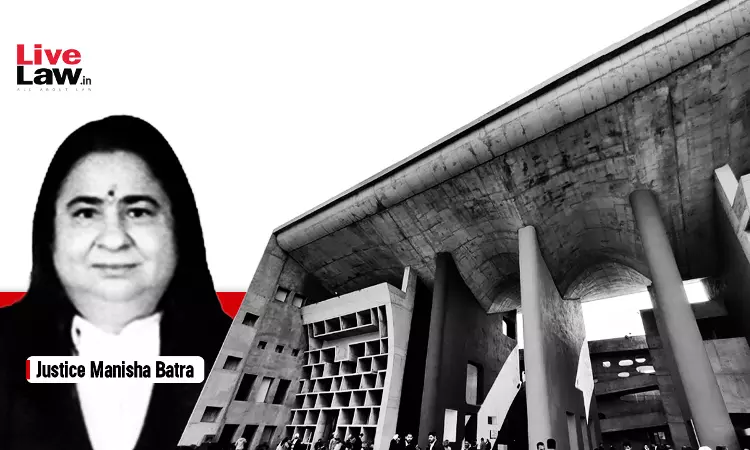- Home
- /
- High Courts
- /
- Punjab and Haryana High Court
- /
- In NDPS Cases Where Sentence Is Of...
In NDPS Cases Where Sentence Is Of 10 Yrs Accused Should Generally Not Be Released On Bail: Punjab & Haryana High Court
Aiman J. Chishti
11 Feb 2025 1:30 PM IST
The Punjab and Haryana High Court has said that in cases involving offences under the Narcotic Drugs and Psychotropic Substances Act (NDPS Act), where sentence is of ten years, the accused should generally be not released on bail.Justice Manisha Batra said,"It has been seen that the denial of bail has prevented the accused from fleeing from the criminal justice and protected the society...
The Punjab and Haryana High Court has said that in cases involving offences under the Narcotic Drugs and Psychotropic Substances Act (NDPS Act), where sentence is of ten years, the accused should generally be not released on bail.
Justice Manisha Batra said,
"It has been seen that the denial of bail has prevented the accused from fleeing from the criminal justice and protected the society by preventing that additional criminal activity. It is believed that the graver the crime the graver is the chances of absconding. Even otherwise, in NDPS cases, where the sentence is of ten years, the accused should generally be not released on bail as in such like cases, negation of bail is the rule and its grant is an exception."
These observations were made while hearing a bail plea under Section 439 Cr.P.C., for grant of regular bail to the petitioner in under Section 20 of the NDPS Act.
It was alleged that a secret information was received by a police party headed by SI Sukhwinder Singh to the effect that the petitioner, who was habitual in selling drugs and recovery of 01 kg. 100 grams of Charas was effected from the same.
After hearing the submissions, the Court noted that allegedly on search of the on raid polythene, which the petitioner had thrown, recovery of 01 kg. 100 grams of Charas was effected.
The Court rejected the counsel for the petitioner's contention that the FSL report only states that Tetrahydrocannbol and other Cannabionoid were found in the sample but no percentage is mentioned and it will make out an arguable point as to whether the recovered contraband was Bhang, Ganja or Charas?
"A perusal of the FSL report shows that it is clearly reported that Charas was found in the sample. Hence, at this stage, it cannot be stated that the recovered contraband was not Charas. So far as the percentage of Tetrahydrocannbol and other cannabionoid is concerned, I do not deem it appropriate to look into the same as this fact it is to be looked into and decided by the learned trial Court after appreciating the entire material placed on record before it," opined the Court.
With respect to the contention that the alleged recovery of the contraband was not effected from the conscious possession of the petitioner as it was done from the polythene bag, which was thrown on the ground, the Court noted, "recovery of 01 kg. 100 grams of Charas was effected from a polythene bag, which was thrown by him on seeing the police party and in the process of fleeing away."
Reliance was placed on Dharampal Singh vs. State of Punjab [(2010) 9 SCC 608], to underscore that the knowledge of possession of contraband has to be gleaned from the facts and circumstances of a case. The standard of conscious possession would be different in case of a public transport vehicle with several persons as opposed to a private vehicle with a few persons known to one another.
Justice Batra highlighted that "the attempt to discard the contraband upon seeing the police do not automatically negate possession. Instead such actions indicate an intention to evade liability, which makes the role of the accused in the offence even more evident."
Considering that the quantity of the contraband recovered in this case falls within the ambit of commercial quantity and no ground has been made out before the Court so as to believe that the petitioner did not commit subject offence or in case, he is released on bail, he would not commit any such or similar offence, the Court said, the rigors of Section 37 of the NDPS Act would be applicable and rejected the plea.
Mr. Raj Kumar Gupta, Advocate and Ms. Lavanya Gupta, Advocate for the petitioner.
Ms. Sakshi Bakshi, AAG, Punjab.
Title: Aaditya Sharma v. State of Punjab
Citation: 2025 LiveLaw (PH) 44



